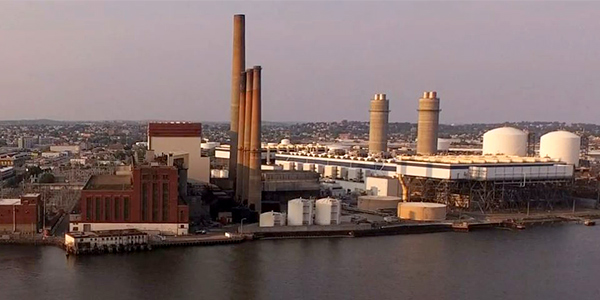FERC on Monday rejected Exelon’s complaint against ISO-NE alleging that the RTO’s request for proposals for competitive transmission projects addressing reliability needs in the Boston area violated its Tariff (EL20-52).
Exelon’s Constellation Mystic Power filed the complaint in June on behalf of its Mystic Generating Station, an eight-unit, 2-GW fossil power plant north of Boston. Constellation charged that ISO-NE was putting the region’s reliability at risk “by prematurely substituting the uncertain outcome” of its RFP “for the certainty provided by Mystic.” (See Exelon Challenges ISO-NE RFP in Bid to Extend Mystic.)
The complaint came two days after the grid operator’s announcement that it had awarded its first RFP under FERC Order 1000, a $49 million project, to incumbent utilities National Grid and Eversource Energy. (See ISO-NE Chooses Incumbent as Boston RFP Winner.)
The RFP was issued to address transmission violations expected with the closing of Mystic Units 8 and 9, whose retirement was extended to May 30, 2024, under a two-year, $400 million cost-of-service contract to preserve the region’s reliability. The National Grid-Eversource project has an in-service date of Oct. 1, 2023, eight months before the end of the contract.
Exelon has been trying to extend the plant’s cost-of-service contract for an additional year. It said ISO-NE violated its Tariff by shortcutting its transmission security review and prematurely culling bids (36 were submitted) received in response to the solicitation.
FERC found that the RFP results provided the grid operator with “sufficient information” to ensure it can address reliability criteria violations without the two retired units. It said ISO-NE conducted the Boston-area needs assessment “to assess transmission security needs resulting” from Mystic 8’s and 9’s retirements.
“Based on the [assessment’s] results … ISO-NE issued the corresponding Boston RFP, which was designed to address the transmission security needs caused by the retirement of Mystic 8 and 9 and involved modeling of whether each proposal addresses the identified reliability needs,” the commission wrote. “For those reasons, we find that ISO-NE was not required and, given the information it obtained from the Boston RFP results, had no need to use the network model in order to comply with [the] Tariff.”
FERC also disagreed with Constellation’s argument that the RTO had violated or circumvented the Tariff by depriving Mystic 8 and 9 of being able to receive compensation from the February 2021 forward capacity auction (FCA) for providing transmission security.
The commission also rejected Constellation’s contention that ISO-NE modified its planning procedures to qualify the National Grid-Eversource project in time for Forward Capacity Auction 15 in 2021, which will procure resources for capacity commitment period 2024/25. The New England Power Pool Participants Committee in June approved over Exelon’s opposition Planning Procedure 10 (PP10), revising the rules for determining whether planned transmission can be included in the network model for the studied capacity commitment period.
FERC said the revision is consistent with ISO-NE’s existing authority under its Tariff “to consider transmission enhancements that may address its reliability concerns.” It noted that the RTO said PP-10 is a business practice manual intended to “detail requirements and procedures … that are conducted pursuant to” the Tariff’s provisions.
The commission further noted that ISO-NE’s Tariff allows it to consider transmission projects as part of its transmission security review, giving the RTO “broad authority to address reliability concerns arising from the retirement of a resource ‘through other reasonable means (including transmission enhancements).’”
Exelon announced the retirement of Mystic 8 and 9 for economic reasons, citing the plant’s dependence on more expensive LNG than natural gas from pipelines.





